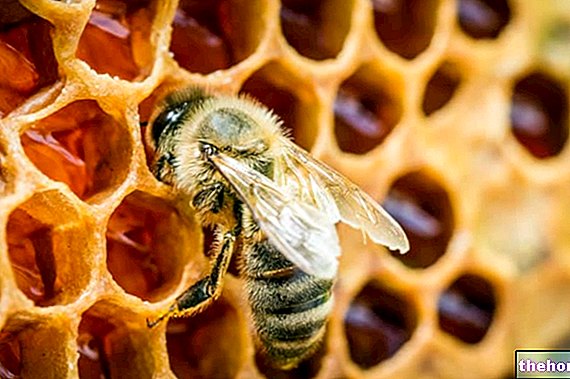This article relates to the use of Brewer's Yeast as a supplement; for use in the kitchen click here
Generality
Brewer's yeast is usually understood to mean a microscopic fungus, formed by colonies of Saccharomyces cerevisiae, obtained by fermentation.
In particular, the yeast cells are grown on a malt substrate (sprouted barley) inside fermenters where they multiply thousands of times.

Brewer's yeast is a rich and complete source of B vitamins, often taken in low quantities in hyperlipidic, hyperglucidic, or highproteic diets, or when alcohol, cigarettes or coffee consumption is high.
Group B is also a very important set of vitamins for athletes, growing children and convalescents, because it facilitates the transformation of proteins, carbohydrates and lipids into energy.
Brewer's yeast contains all the B vitamins, dosed in good proportions for their correct integration (the B complex vitamins act in synergy with each other, acting on the metabolism regulation systems). However, vitamin B12 is an exception, lacking in vegan diets, being typical of the animal kingdom.
In brewer's yeast, selenium, chromium (insulin cofactor and preventive of diabetes mellitus), glutathione, sulfur, essential amino acids (leucine, valine, isoleucine, threonine, phenylalanine, methionine, tryptophan, lysine) are added to the B vitamins. phosphorus, potassium and magnesium.
Indications
Why is brewer's yeast used? What is it for?
The richness of micronutrients and trace elements is certainly the determining factor in the use of brewer's yeast as a supplement.
More precisely, the following are attributed to brewer's yeast:
- Maintenance functions of the integumentary system and skin appendages (hair, nails and hair);
- Precious dermatological functions in improving pathologies such as seborrhea and acne;
- Probiotic functions, effective both in supporting the correct gastrointestinal function and in preserving the correct immune functioning;
- Re-mineralizing functions, important in sports to rebalance the saline losses due to copious sweating during physical exercise;
- Immunostimulating functions;
- Healing functions, useful in the course of wounds and burns;
- Revitalizing functions, due to the high content of B vitamins;
- Neuroprotective functions;
- Metabolic functions, thanks to the presence of Beta-Glucans.
Properties and Effectiveness
What benefits has brewer's yeast shown during studies?
Despite the numerous biological functions attributed to brewer's yeast, and its rich nutritional characteristics, the scientific literature appears to be somewhat debated on its real potential and clinical applications.
At the moment, the main preventive and clinical activities attributable to brewer's yeast should be traced back to the presence of some proteins rich in selenium and chromium rather than the richness of B vitamins.
According to various authors, these proteins are said to be responsible, at least in vitro and in experimental models, for an "appreciable antitumor activity against particularly aggressive carcinomas, such as those of the lung, prostate and colorectal.
On the other hand, all those “nutritional” activities of brewer's yeast related to the abundant quantity of B vitamins, essential amino acids, Beta-glucans and other active ingredients would remain to be investigated with greater accuracy.
Dosage and method of use
How to use brewer's yeast?
Brewer's yeast is marketed in the form of flakes, powders, tablets and capsules.
The dosage varies according to the needs, the type of preparation and the possible contextual presence of other active ingredients.
Generally, the daily limit of 400 mg should not be exceeded, taking care - in order to avoid unpleasant gastro-intestinal problems - to progressively reach the useful dosage.
Side effects
The use of brewer's yeast, in conjunction with other yeasts, could determine the onset of abdominal bloating, flatulence and meteorism.
There have been rare episodes of noteworthy allergic reactions.
Contraindications
When should brewer's yeast not be used?
The use of Brewer's yeast is contraindicated in case of hypersensitivity to yeasts or drug therapies with monoamine oxidase inhibitors.
Pharmacological interactions
What drugs or foods can change the effect of brewer's yeast?
The concomitant intake of brewer's yeast and monoamine oxidase inhibitors could cause an undesirable hypertensive effect.
Precautions for use
What do you need to know before taking brewer's yeast?
Given the lack of studies on long-term safety and efficacy in pregnant women, the use of brewer's yeast supplements should be avoided during pregnancy and during the subsequent breastfeeding period.




























